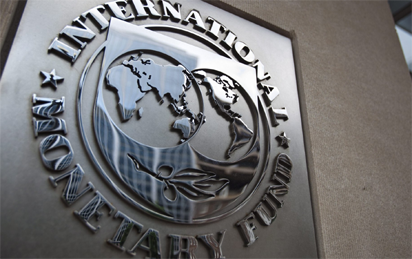The International Monetary Fund (IMF) has advised Nigeria to adopt fiscal and other measures that would help the country to attract private investments and increase domestic revenue generation as a strategic option of achieving sustainable economic growth.
The advice was part of the recommendations contained in the Fund’s Spring 2018 Regional Economic Outlook for Sub-Saharan Africa, presented by itsSenior Resident Representative and Mission Chief for Nigeria, Mr. Amine Mati, on Monday in Lagos.
Commenting on the report titled: “Domestic Revenue Mobilization and Private Investment”, Mati noted that the country’s GDP growth rate in the first quarter of this year which stood at 1.95 percent was within the Fund’s projection of 2.1 percent for the country in the current fiscal year.
He restated the need for Nigeria and other Sub-Saharan economies to adopt policies that would help in reducing macro-economic vulnerabilities and also to focus on growth targets that surpass their population rates.
While maintaining the Fund’s earlier projection that the Sub-Saharan African region will experience moderate growth, Mati warned the governments against rising debts in the economies.
On what should be done to attract private investments, Mati advocated an effective Public-Private Partnership model and Special Economic Zones, with institutional and legal frameworks that would lead to significant foreign direct investments (FDIs) in the countries
“Increasing private investment is critical for the region to achieve sustainable growth and improve social outcomes over the medium term”, Mati said
This is even as he maintained that domestic revenue mobilization remained one of the key challenges facing Sub-Saharan African countries, noting that despite the countries’ efforts to improve revenue the SSA remains the region with the lowest revenue-to-GDP ratio in the last two decades.
The Fund also noted that SSA region can mobilize 3-5 percent of GDP in additional tax revenues, pointing out, however, that to achieve this there is the need to strengthen the Value-Added Tax (VAT) systems, streamline exemptions; and expand coverage of income taxes.
The IMF also recommended the introduction of new measures of taxation , such as property taxes and harnessing technologies that will ensure cost efficiency and eventually improve tax revenue .
The Director-General, Debt Management Office (DMO) Ms. Pat Oniha, while speaking at the occasion explained that Nigeria’s borrowings were targeted at capital expenditure that will impact positively on the nation’s economy.
This is even as the Chief Executive Officer of the Nigeria Economic Summit Group (NESG), Mr. Laoye Jaiyeola, decried the lack of public-private partnership framework in the country.
Jaiyeola charged the Federal Government to provide additional support for the private sector and promote transparency in the open governance partnership signed by the government to promote private sector-driven growth of the economy.



